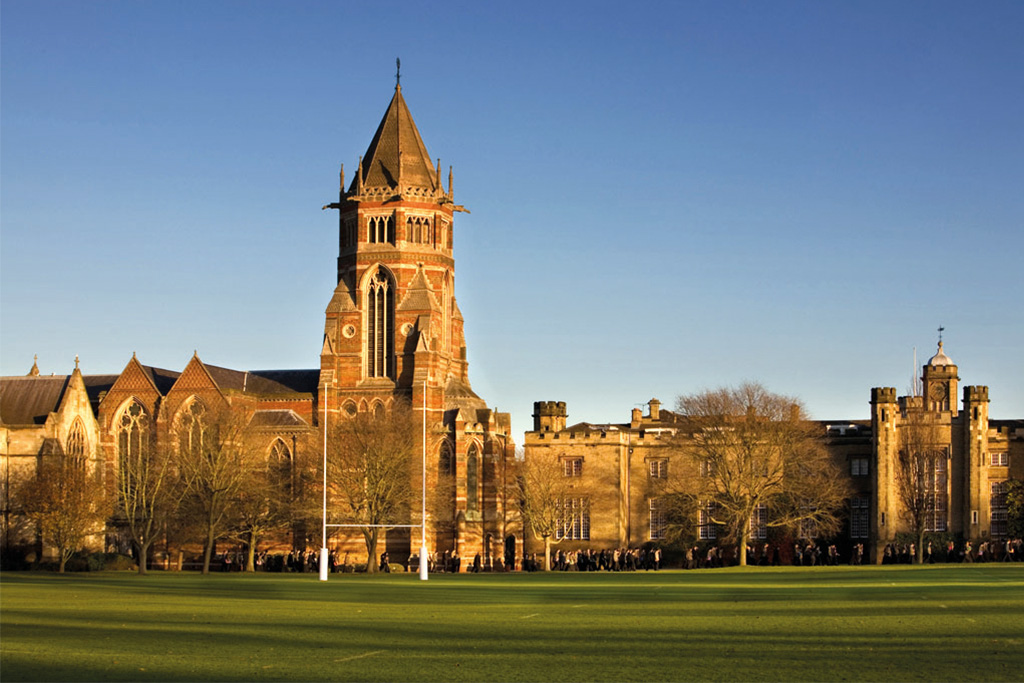Money Matters Summed Up
By
3 years ago

Worried about the impact of inflation on school fees? These are the strategies you need now, says Sally Jones.

The current rollercoaster ride inflicted on our lives and finances by the perfect storm of the energy crisis, Covid and the war in Ukraine triggering huge increases in living costs and inflation, is hitting even the richest families in the pocket.
Of course, there have been a few winners. But for every tech employee, enjoying healthy bonuses, there have been dozens of losers. Anyone in hospitality, tourism and high street retail, for a start and although these businesses are now rebooting, the losses incurred will have a longstanding impact on millions of families.
For those considering independent education for their children – or trying to manage the inexorably rising school fees of youngsters already in the system – the prospect can be terrifying. Seven years of boarding from the age of 11 at a big-name school can cost the equivalent of buying a Rolls Royce – up to £250,000 during the child’s time at senior school. Even though numerous schools froze their fees when lessons migrated online and a few, such as Bryanston, even reduced them, many are now facing a barrage of requests for help with fees from desperate parents.
Rugby School’s Finance Director, Nicholas Winther, is responsible for the school’s bursary provision. ‘I handle the frequent hardship requests when parents lose their jobs, become ill or divorce,’ Winther explains. ‘During Covid, many people’s income dried up overnight and the Ukraine war will have a big impact, too. Rugby is lucky to have an extensive foundation plus investments and substantial legacies to fund hardship bursaries, so we’ve tried to be flexible, putting in place various support measures: sometimes giving people more time to pay or finding bursary funds to make up the shortfall. We’ve also had generous gifts from some existing parents to enable other children to continue their education here.’
Rachel Frier, bursar of Heathfield School, Ascot, a girls’ boarding and day school, with 225 pupils aged 11-18, has seen a similar pattern. ‘The parent debtor list has increased in the past two years,’ Frier says, ‘mostly due to the impact of Covid on their business and income. We set up a hardship fund during lockdown and also offered parents more time to pay, giving them some breathing space. Parents are well aware that educating children at a good independent senior school – particularly if they’re boarding – is a big investment. Many are prepared to make sacrifices in order to prioritise their daughter’s education: some even move closer to the school so that the daughter can attend as a day pupil, saving boarding fees of between £15,000 and £20,000 a year.’
A recent census by the Independent Schools Council (ISC) showed that in 2020, schools provided £900 million in bursaries, £440 million of this means-tested and that the recipients received on average almost £10,000 a year, an increase of 5.2 per cent compared with 2019.
Overall, Rugby supports about 15 per cent of its pupils’ fees, through scholarships, bursaries and other discounts, with the emphasis increasingly on means-tested bursaries. As at many top schools, scholarships for academic, sporting or artistic excellence are now offered at five per cent, and prized for the award’s kudos rather than its monetary value – though scholars from cash-strapped families usually receive generous bursaries, too. Some well-heeled parents even donate their child’s scholarship discount to the Arnold Foundation which supports boarding places for those who can afford it the least.
At Rugby, 41 per cent get some financial assistance, compared to about 33 per cent in the independent sector as a whole; 58 pupils across the school have more than 100 per cent of their fees paid (to include extras), while 153 pupils receive 50 per cent or more in fee remission.
However, even with a bursary, most parents need a range of different strategies to cover the fees which now, with inflation again on the increase, are rising by a higher percentage than wages.

Doug Bonnar of the long-established financial planning firm SFIA, which specialises in advising families on managing school fees in a tax-efficient way, predicts a 4.5 per cent increase per year in overall fees.
‘There’s a number of measures families can take,’ he explains. ‘But if they aim to pay fees for more than one child without some bursary support, it’s unlikely they can keep up a comfortable lifestyle if their combined income is under £150,000 a year.’
Bonnar’s suggestions start with borrowing money for the fees via a mortgage company. ‘Take expert advice; don’t sort out the mortgage on your house before you work out the school fees. These involve the second biggest outlay after your property and it makes sense to combine them via a really good plan.’
Grandparents – and anyone except the child’s own parents, for example, uncles, aunts or special friends – can gift money to the child, Bonnar says, and this can then be invested in their name to provide benefits including school fees. ‘Any income or gains from these investments are then taxed according to the child’s tax allowance, not the parents.’ The gift can also reduce the amount of Inheritance Tax (IHT) due on the donor’s estate.’
Although a donor making a one-off gift must survive for seven years after the donation, Bonnar adds, to avoid being taxed on the sum, there is an exception to this rule. ‘Anyone, typically grandparents can make regular unlimited gifts exempt from IHT, for anything, including school fees, so long as they can afford the payments out of surplus income and it doesn’t affect their standard of living.’
Children can receive money from anyone except their parents via a trust, the simplest of which is called a bare trust. This is a gift that must be spent for the benefit of the child and is taxed at the child’s tax rate, not the parents’. One caveat, says Bonnar, ‘is that when the child reaches the age of 18, the money is theirs to control – something that can be managed by not making the gift too large. The donor can decide if the parents should look after this money while the child is under 18 and the trustees can spend the money on the child’s behalf in any way they see fit.’ How does this work in practice?
One family Bonnar worked with wanted to send their two boys to an expensive senior school in Hampshire. ‘The parents couldn’t afford the fees,’ he explains. ‘They had a small business which didn’t produce much income, though they had some equity in property. We restructured using pensions and refinancing plus borrowing.
‘The grandparents owned shares in the parents’ limited company, so they gifted these to the grandchildren, which helped. This was one situation where several different solutions were needed: the boys are thriving at the school and the parents are happy to be doing what they see as best for their sons.’
Catherine Morgan (catherinemorgan.com) is a widely-respected financial coach and planner, and author of the best-seller, It’s Not About The Money (Amazon, £12.99). She recommends that grandparents set up a family business then name the children as shareholders.
‘The grandparents can put income-generating assets into the business,’ says Morgan, ‘like property or investments. The dividends they receive from this then help to cover the school fees, which are tax-free so long as the children have no other earnings or income and can use their personal
tax allowance.
‘For the 2021/22 year, this is £12,570. This gives grandparents the pleasure of helping their family during their lifetimes rather than through
an inheritance.’
Morgan also suggests investing in an offshore investment bond as well as ISAs. ‘Most people know the benefits of investing in tax-free ISAs but it is well worth considering using offshore investment bonds too. Grandparents can invest a lump sum in an investment bond, name themselves as the trustees and the children as the beneficiaries.
‘The bond is then split into a few hundred policy segments which are encashed individually to pay for the school fees each year.’

She also suggests parents look at the new pension rules, as at the age of 55, a donor can take 25 per cent of their pension pot as a tax-free lump sum. This could be used to pay for independent school fees.
For high-rate taxpayers, taking it as a lump sum is tax efficient as they will have no additional tax to pay. ‘The rest of the pension can be left invested for their retirement income. It is vital to take expert advice before making major changes to your pension arrangements.’
As a parent, Morgan has first-hand experience of managing fees: her two sons are both at an independent school. ‘We currently fund the fees through revenue from my salary and dividend drawings,’ Morgan explains.
‘We started an investment account for the boys in our 20s and this money is currently invested in a combination of ISAs and Designated OEICs (Open-ended Investment Companies). This way they benefit from stock market growth and compound interest with monthly contributions.
‘We also have flexibility as the ISAs are in our names so we can choose to use the funds for ever changing purposes – perhaps a university fund later on. The OEICs will go to the boys if anything happens to us.’
Morgan and her husband also have an investment bond with regular contributions started in their 20s (£50 a month) in trust outside of their estate for IHT purposes, though isn’t necessary if an estate is unlikely to exceed the IHT thresholds. (The IHT threshold is £325,000 each, £650,000 for a couple plus RNRB (Residence Nil-Rate Band) of £175,000 each if a home is passed to direct descendants, so a couple could potentially have an estate of £1million without an IHT liability.)
The couple intends to employ the boys, managing social media for their business, once they turn 16. ‘They can then draw an annual tax-free salary which could help with fees.’
She says their experience of private school so far has been good: ‘Wide curriculum, travel opportunities, good home-schooling during lockdown and the longer school holidays give us more quality family time together. Every child’s needs are so different, I think opting for private education is a really personal choice.
‘One thing’s for certain: proper advance planning and savvy financial advice can save you and your family a fortune.’
School Fee Tips for Cash-Strapped Parents
1
If you’re having financial problems, don’t bury your head in the sand,’ advises Rugby School’s Finance Director, Nicholas Winther. ‘Talk to your school bursar at once. We, and other established schools, are lucky to have the resources to help.’
2
Be honest in your application. ‘As a charity we must ensure the funds are well spent. Some people claim penury then drive off in a brand new car, or Google Streetview shows them living in a large house. That destroys trust.’
3
‘Consider paying a lump sum up front,’ suggests Heathfield’s Bursar Rachel Frier. ‘We offer a small discount if you – or another family member – pay some fees in advance: useful given that bank interest rates aren’t great.’
4
‘Apply for bursary provision in good time to avoid disappointment,’ says Frier, before girls sit the assessment in mid-October, so the school can assess how many need support and what budget it has to spend.
See the online listings of schools mentioned here: Heathfield, Ascot and Rugby School



